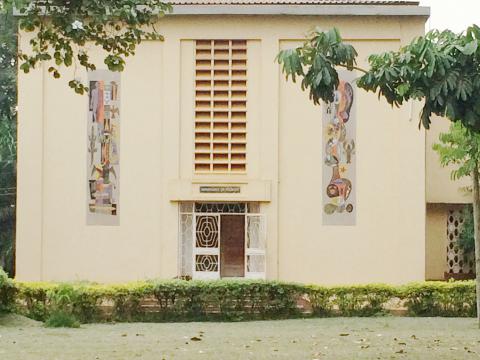About Us

Zoology is a branch of biology that deals with the study of animals, animal-like organisms and their interactions with people and the environment. Zoology as a discipline is taught in the Department of Zoology, Entomology, Fisheries Sciences (ZEFS) which was created by the Makerere University Council on 6 October 2015. Zoology at Makerere University was previously taught in the Department of Biological Sciences and before that, in the Department of Zoology. To reflect changing trends in knowledge and its application for socio-economic development, a major revision was undertaken of the training approach and focus. Subsequently a revitalized Department of Zoology, Entomology, Fisheries Sciences was created that is more in tune with the University’s mission of producing skilled manpower for socio-economic development at the local, regional and international.
The Department of Zoology, Entomology and Fisheries Sciences (ZEFS) is a new department in the College of Natural Sciences formally called the Department of Zoology in the former Faculty of Science. The department offers a broad range of courses in animal sciences, as well as utilisation of animal resources for the benefit and welfare of mankind.
Studying in the Department
Current programmes in ZEFS are: BSc (Zoo/Bot/Chem/Biochem), BSc (Fisheries and Aquaculture), MSc (Zoology-Entomology), MSc (Zoology-Parasitology), Msc (Zoology-Fisheries and Aquaculture) and MSc (Zoology-Wildlife Ecology and Conservation). BSc Conservation Biology housed by the department of Plant Sciences, Biotechnology and Microbiology is taught jointly by ZEFS. Currently, ZEFS has 21 senior staff (18 with PhDs and 3 with Masters and 13 support staff.
The proposed programmes in ZEFS are: BSc Entomology and Parasitology, BSc. Conservation Science and Wildlife Ecology, MSc Entomology, MSc Parasitology, MSc Wildlife Ecology and Landscape Management (developed with Botany) and MSc Fisheries, Aquaculture and Aquatic Sciences.
The courses offered by the department fall within the fields of genetics, animal, plant physiology, insect and fish, Entomology, Parasitology and Natural resources conservation. Graduates of the department become skilled at playing important roles in the study and improvement of animal production, public health and food safety, conservation of biodiversity including genetic and wildlife resources, fisheries and aquaculture.
The museum and aquarium are one of the several facilities that aid training in the animal sciences. The Department also conducts specialized training in very practical fields such as Aquaculture (fish farming), Apiculture (beekeeping), Water Quality Assessments, GIS and Bioinformatics and also offers consulting services in biodiversity and environmental impact assessments, among others. In Fisheries and Aquatic Sciences, the Department gives specialized training in fisheries science in Uganda, in particular and in East Africa in general. Otherwise before 2001 this specialized training was only offered at Diploma level at the Training Institute at Entebbe. Other supportive disciplines are studied in the department: GIS and bioinformatics training, data collection and analysis, computer literacy and communication skills.
